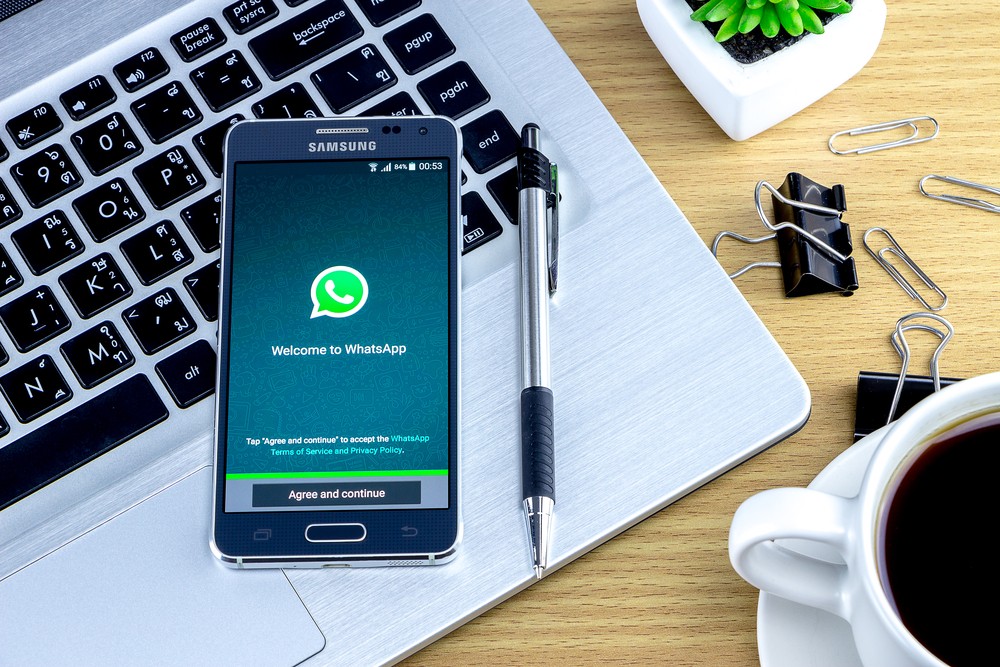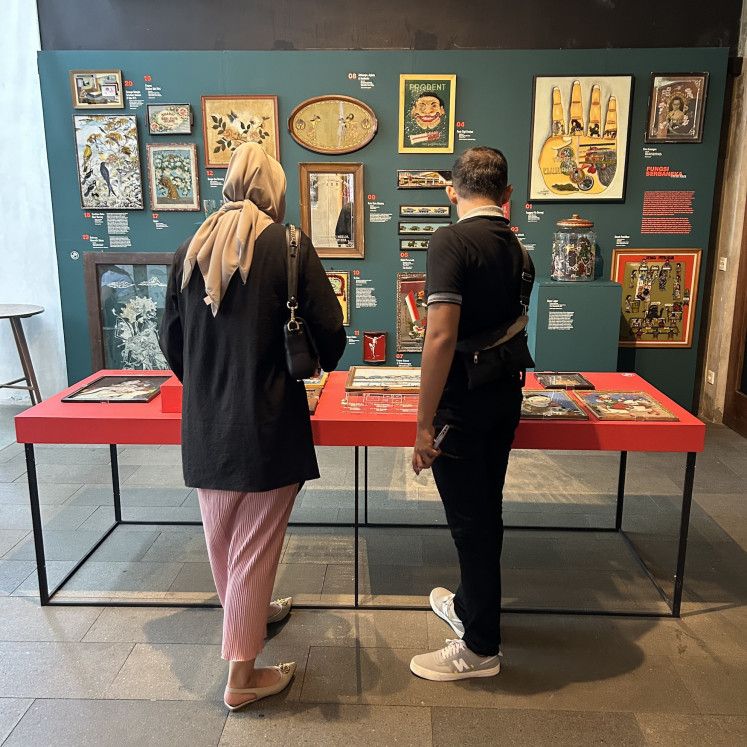How I learned to stop worrying and love the workplace WhatsApp group
No one warned me about Indonesian’s obsession with using WhatsApp for workplace communication.
Change Size
 Facebook-owned WhatsApp is trying to make its app simpler for users by adding the ability to refer to old messages, or messages that are deep in the rapidfire banter. (Shutterstock.com/Chonlachai Panprommas)
Facebook-owned WhatsApp is trying to make its app simpler for users by adding the ability to refer to old messages, or messages that are deep in the rapidfire banter. (Shutterstock.com/Chonlachai Panprommas)
B
efore moving to Indonesia last September I was warned about plenty of things: the traffic, the rain, the heat and the humidity. I was told I would most likely experience culture shock and that it would take time to adapt to the Indonesian ways of living, commuting and interacting. None of this turned out to be a big problem for me – the back of a bike is a great way to beat the traffic, the weather is (usually) predictable, and I can’t get enough of Indonesian food, culture and people.
The one thing that did trip me up, however, was something that no one warned me about – Indonesian’s obsession with using WhatsApp for workplace communication.
Back in Australia, I complained constantly about excessive work email and how it got in the way of doing actual work. I don’t have that problem here in Indonesia, receiving only a handful of work emails a day (mostly news alerts). Instead, I get WhatsApp messages. Lots and lots and lots of them. On multiple workplace groups and individual workplaces conversations. At busy times, or when there is an event coming up, it’s common to receive several hundred messages in a single day.
Read also: How Japan's overwork culture leads to 'karoshi'
This has taken a lot of getting used to. And I don’t mind saying that at the start I was totally overwhelmed. Instead of waking up to, say, five or six emails (which I could usually ignore), I was waking up to dozens of WhatsApp messages across multiple groups and conversations. And the phone didn’t stop pinging all day. I even had to install the WhatsApp desktop application in an attempt to stay on top of it all.
As an Irish-Australian with family and friends on opposite sides of the world, WhatsApp was already my default form of personal communication. Since moving to Indonesia, these conversations and group chats with my girlfriend, family and friends across the world now sit beside those with my boss, work colleagues and other professional contacts. For the unwary and inexperienced, the potential to send the wrong message to the wrong group or conversation is an ever present risk.
Every expat I know has been tripped up by this on multiple occasions – including a friend who accidentally (and hilariously) sent a seriously bitchy complaint about her boss, to her boss instead of to me. Personally I’ve been lucky; the worst I’ve done is asked my boss to pick up some milk and Indomie on the way home and sent my girlfriend boring messages about translating social media posts into the Indonesian language.
Read also: Your guide to social media popularity
Weirdly enough though, I’ve found that most Indonesians don’t make this mistake. Perhaps it’s like driving in Jakarta – to an outsider it seems like there is only chaos, but Indonesians navigate it all smoothly and calmly, rarely making a mistake or losing their cool.
It’s not just the potential of sending the wrong message to the wrong group that is cause for concern - there is also the invasion of privacy. Unlike emails, which can remain unopened or left at the office on nights and weekends, because WhatsApp is on your phone it’s rarely out of reach. This further blurs the boundaries between work and non-work – with messages coming at all times of the day, night and weekend and an expectation to be “always on”.
Because your colleagues/bosses know when you have read the message (the blue ticks), when you are online or when you are typing, there is pressure for an instant response. Unlike an email, where you can arrange your thoughts before hitting reply – the pressure in WhatsApp is to text back quickly. This can lead to mistakes, poorly formed responses, unintended offense, or conversations going way off-topic. Trying to keep a track of who said what a few weeks back or to call up an old message is a nightmare.
Of course it’s not all bad. WhatsApp is instant, it’s less formal and more inclusive. Conversations can happen in real time, in a way that email can never facilitate. When you are stuck in macet (traffic) you can still work (ideally not from the back of a bike though). You can even send files and make phone calls through it.
So despite my many initial misgivings (and constant complaints) I’ve found myself coming around to WhatsApp for work. Firstly, and most importantly, it is where Indonesians already are, so I have no choice but to adapt. There are also a number of workarounds to make it somewhat more manageable: the “delete for everyone” function to remove an accidentally sent message if you move quickly; the ability to turn off your read receipts (the two blue ticks); and the fact you can mute particularly active groups.
Perhaps I’m even becoming too comfortable with WhatsApp for work, because now I’m finding it’s me who is very active on the work chats (during work hours), particularly when people are stuck on different sides of Jakarta or even further away.
Recently I even found myself uttering the words I swore I never would: “Let me set up a WhatsApp group so we can all discuss it”. Maybe I’m making the move to the love side of the love/hate relationship with the WhatsApp group after all.
***
Barry Dunning is an Irish-Australian communications expert currently based in Jakarta. He can be found tweeting at @barrydunning1
---------------
Interested in writing for thejakartapost.com? We are looking for informative stories and opinion pieces from experts in a variety of fields, and others with appropriate writing skills. All content must be original on any of the following topics: lifestyle ( beauty, fashion, food), entertainment, science & technology, health, parenting, social media, sports. Submit your writing to community@jakpost.com. Click here for more information.









